| Weight | 1 lbs |
|---|---|
| Dimensions | 9 × 5 × 2 in |
| host | mouse |
| isotype | IgG1 |
| clonality | monoclonal |
| concentration | 1 mg/mL |
| applications | ICC/IF, WB |
| reactivity | Cardiac Troponin I |
| available sizes | 100 µg |
mouse anti-Cardiac Troponin I monoclonal antibody (10F4) 2398
$235.00
Antibody summary
- Mouse monoclonal to Cardiac Troponin I
- Suitable for: WB,ELISA
- Isotype: IgG1
- 100 µg
mouse anti-Cardiac Troponin I monoclonal antibody (10F4) 2398
| antibody |
|---|
| Tested applications WB,ELISA |
| Recommended dilutions These antibodies may be used in immunoassays and Western blots to detect and quantitate human cardiac troponin I. They may also be used to affinity purify cardiac troponin I. |
| Immunogen Purified human cardiac troponin I. |
| Size and concentration 100µg and lot specific |
| Form liquid |
| Storage Instructions These antibodies are stable for at least one (1) year at -20°C to -70°C. Store product in appropriate aliquots to avoid multiple freeze-thaw cycles. |
| Storage buffer PBS containing 0.1% NaN3 |
| Purity protein affinity purification |
| Clonality monoclonal |
| Isotype IgG1 |
| Compatible secondaries goat anti-mouse IgG, H&L chain specific, peroxidase conjugated polyclonal antibody 5486 goat anti-mouse IgG, H&L chain specific, biotin conjugated, Conjugate polyclonal antibody 2685 goat anti-mouse IgG, H&L chain specific, FITC conjugated polyclonal antibody 7854 goat anti-mouse IgG, H&L chain specific, peroxidase conjugated polyclonal antibody, crossabsorbed 1706 goat anti-mouse IgG, H&L chain specific, biotin conjugated polyclonal antibody, crossabsorbed 1716 goat anti-mouse IgG, H&L chain specific, FITC conjugated polyclonal antibody, crossabsorbed 1721 |
| Isotype control Mouse monocolonal IgG1 - Isotype Control |
| target relevance |
|---|
| Protein names Troponin I, cardiac muscle (Cardiac troponin I) |
| Gene names TNNI3,TNNI3 TNNC1 |
| Protein family Troponin I family |
| Mass 24008Da |
| Function FUNCTION: Troponin I is the inhibitory subunit of troponin, the thin filament regulatory complex which confers calcium-sensitivity to striated muscle actomyosin ATPase activity. |
| Structure SUBUNIT: Binds to actin and tropomyosin. Interacts with TRIM63. Interacts with STK4/MST1. {ECO:0000269|PubMed:12060657, ECO:0000269|PubMed:15601779, ECO:0000269|PubMed:18986304}. |
| Post-translational modification PTM: Phosphorylated at Ser-42 and Ser-44 by PRKCE; phosphorylation increases myocardium contractile dysfunction (By similarity). Phosphorylated at Ser-23 and Ser-24 by PRKD1; phosphorylation reduces myofilament calcium sensitivity. Phosphorylated preferentially at Thr-31. Phosphorylation by STK4/MST1 alters its binding affinity to TNNC1 (cardiac Tn-C) and TNNT2 (cardiac Tn-T). {ECO:0000250, ECO:0000269|PubMed:12242269, ECO:0000269|PubMed:15514163, ECO:0000269|PubMed:18986304, ECO:0000269|PubMed:2226863, ECO:0000269|PubMed:22972900, ECO:0000269|PubMed:9346285}. |
| Involvement in disease DISEASE: Cardiomyopathy, familial hypertrophic, 7 (CMH7) [MIM:613690]: A hereditary heart disorder characterized by ventricular hypertrophy, which is usually asymmetric and often involves the interventricular septum. The symptoms include dyspnea, syncope, collapse, palpitations, and chest pain. They can be readily provoked by exercise. The disorder has inter- and intrafamilial variability ranging from benign to malignant forms with high risk of cardiac failure and sudden cardiac death. {ECO:0000269|PubMed:11815426, ECO:0000269|PubMed:12707239, ECO:0000269|PubMed:12974739, ECO:0000269|PubMed:16199542, ECO:0000269|PubMed:9241277}. Note=The disease is caused by variants affecting the gene represented in this entry.; DISEASE: Cardiomyopathy, familial restrictive 1 (RCM1) [MIM:115210]: A heart disorder characterized by impaired filling of the ventricles with reduced diastolic volume, in the presence of normal or near normal wall thickness and systolic function. {ECO:0000269|PubMed:12531876}. Note=The disease is caused by variants affecting the gene represented in this entry.; DISEASE: Cardiomyopathy, dilated, 2A (CMD2A) [MIM:611880]: A disorder characterized by ventricular dilation and impaired systolic function, resulting in congestive heart failure and arrhythmia. Patients are at risk of premature death. {ECO:0000269|PubMed:19590045, ECO:0000269|PubMed:21846512}. Note=The disease is caused by variants affecting the gene represented in this entry.; DISEASE: Cardiomyopathy, dilated, 1FF (CMD1FF) [MIM:613286]: A disorder characterized by ventricular dilation and impaired systolic function, resulting in congestive heart failure and arrhythmia. Patients are at risk of premature death. {ECO:0000269|PubMed:19590045, ECO:0000269|PubMed:21846512}. Note=The disease is caused by variants affecting the gene represented in this entry. |
| Target Relevance information above includes information from UniProt accession: P19429 |
| The UniProt Consortium |
Data
| No results found |
Publications
| pmid | title | authors | citation |
|---|---|---|---|
| We haven't added any publications to our database yet. | |||
Protocols
| relevant to this product |
|---|
| Western blot IHC ICC |
Documents
| # | SDS | Certificate | |
|---|---|---|---|
| Please enter your product and batch number here to retrieve product datasheet, SDS, and QC information. | |||
Only logged in customers who have purchased this product may leave a review.
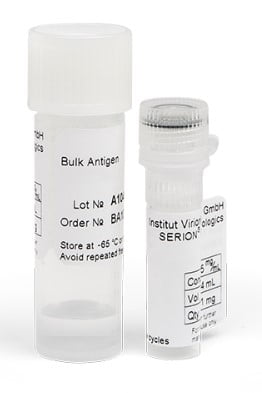
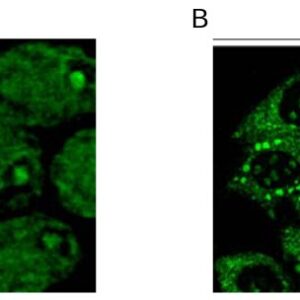
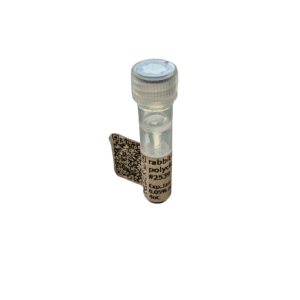
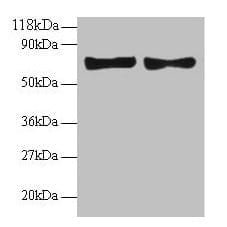
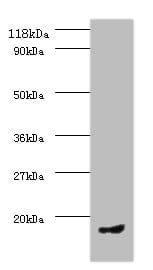

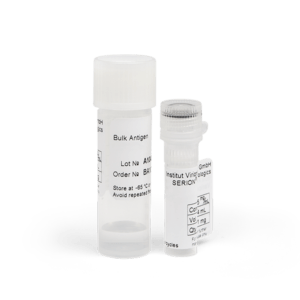
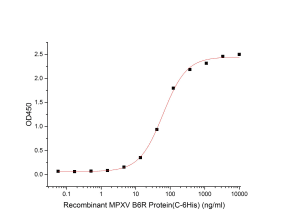
Reviews
There are no reviews yet.